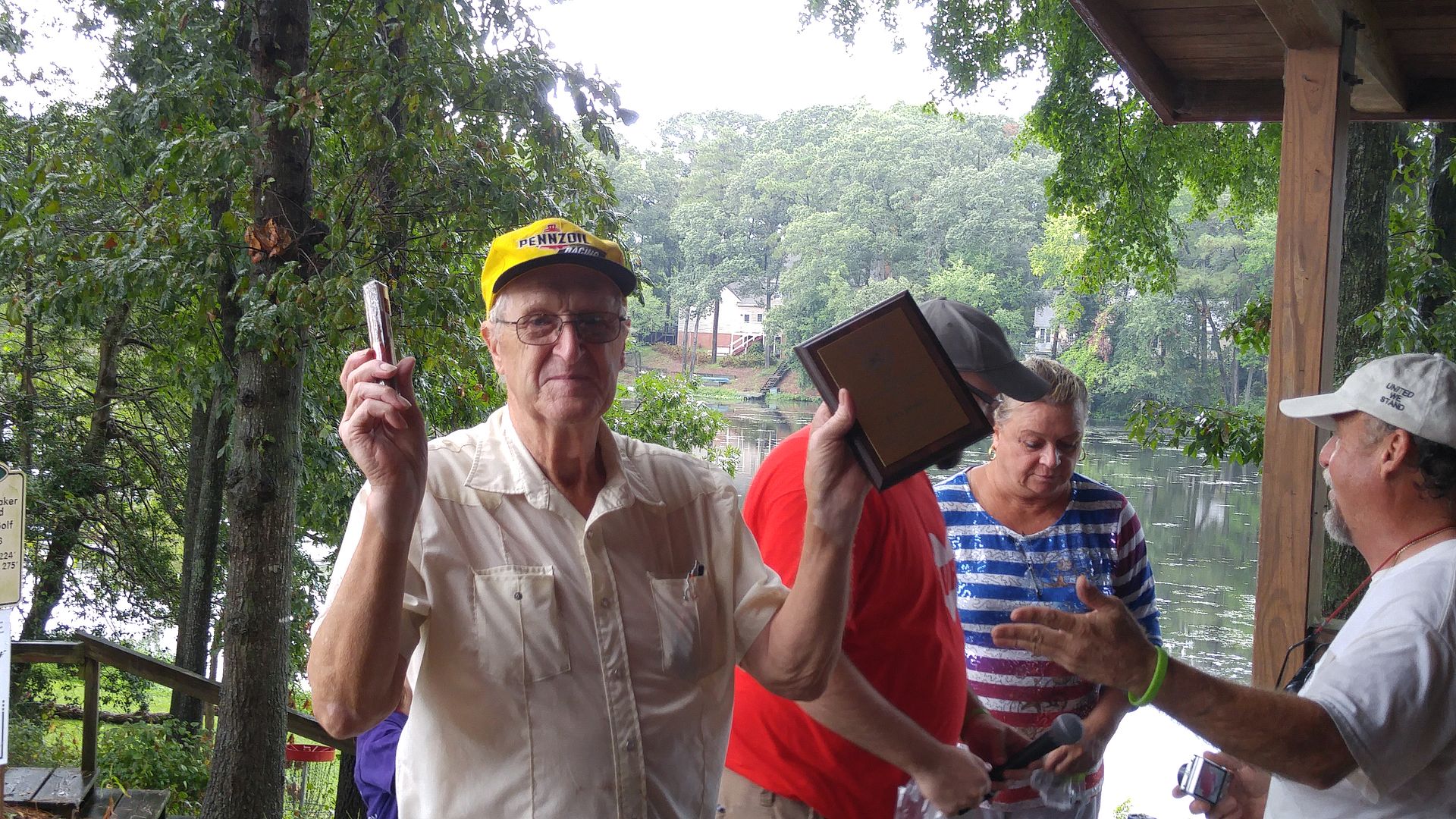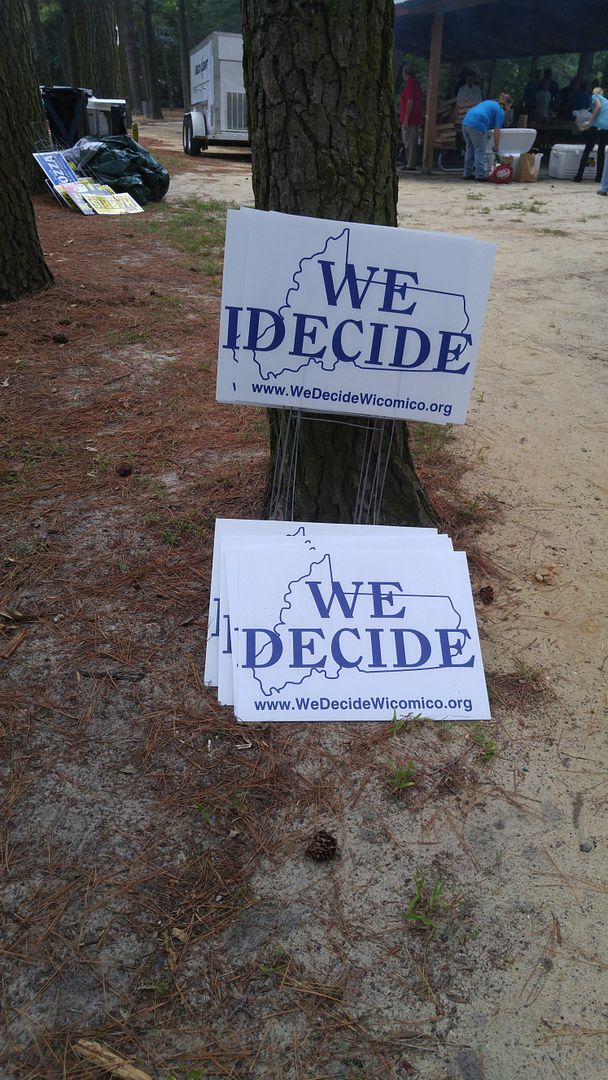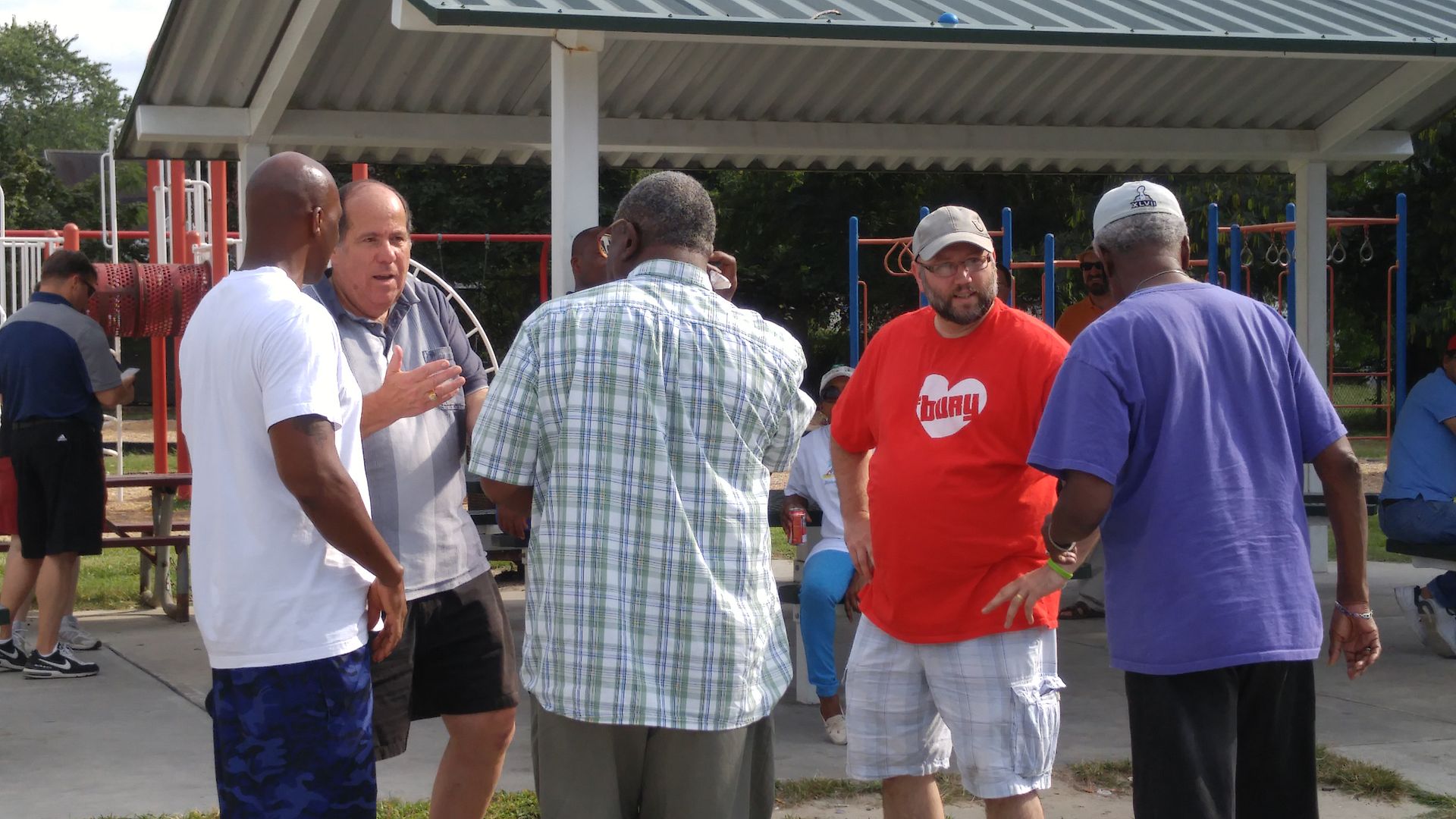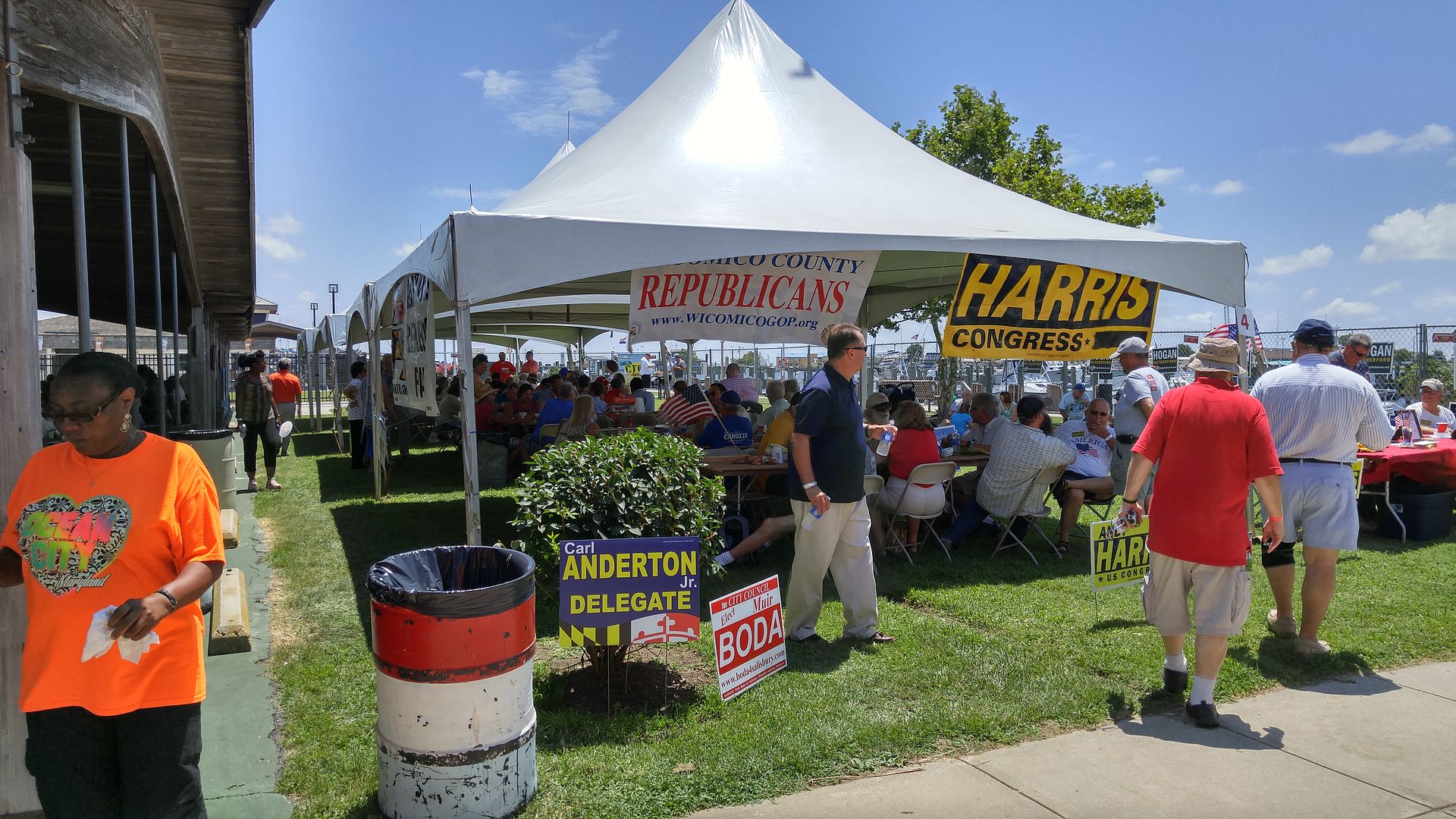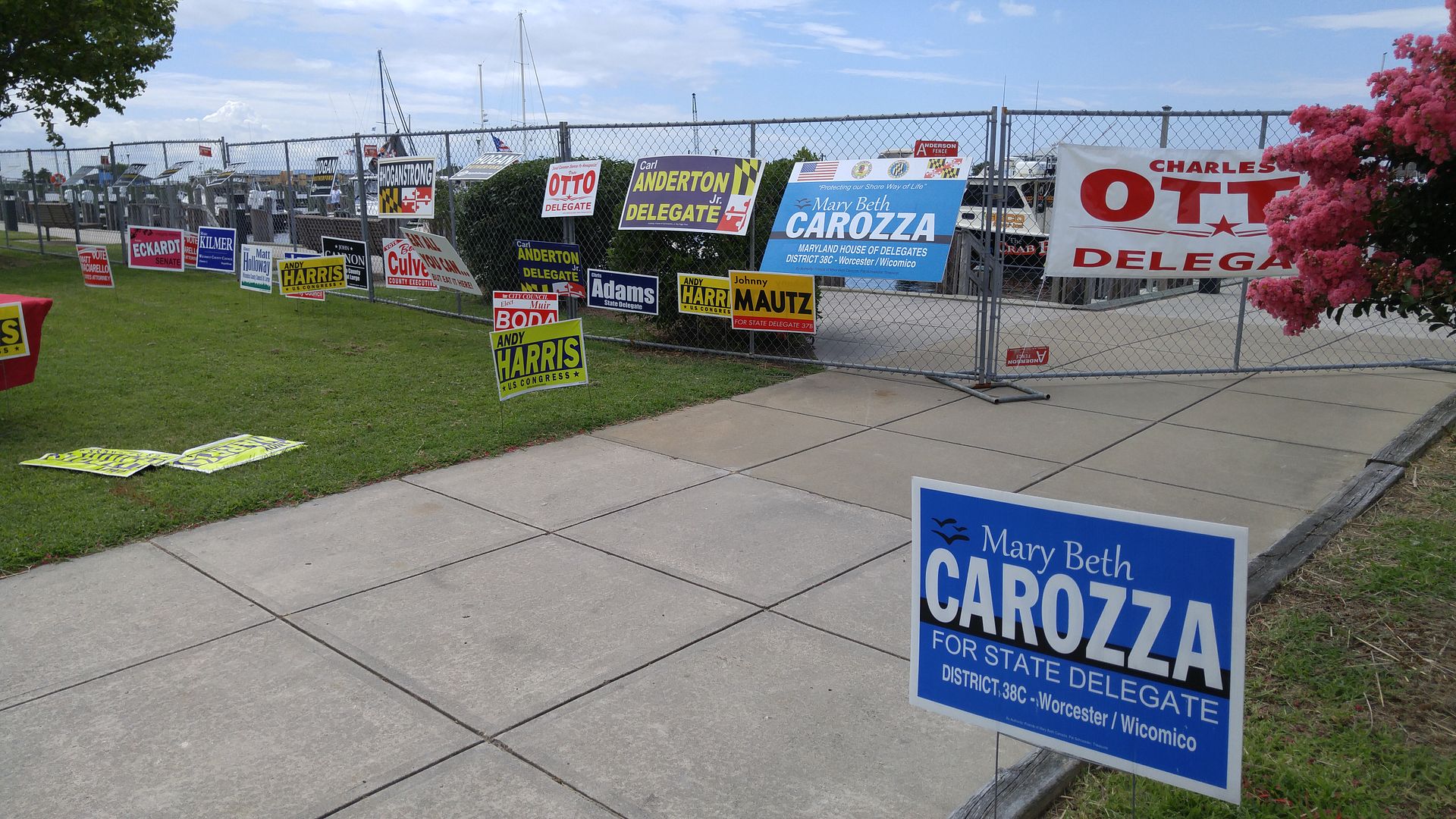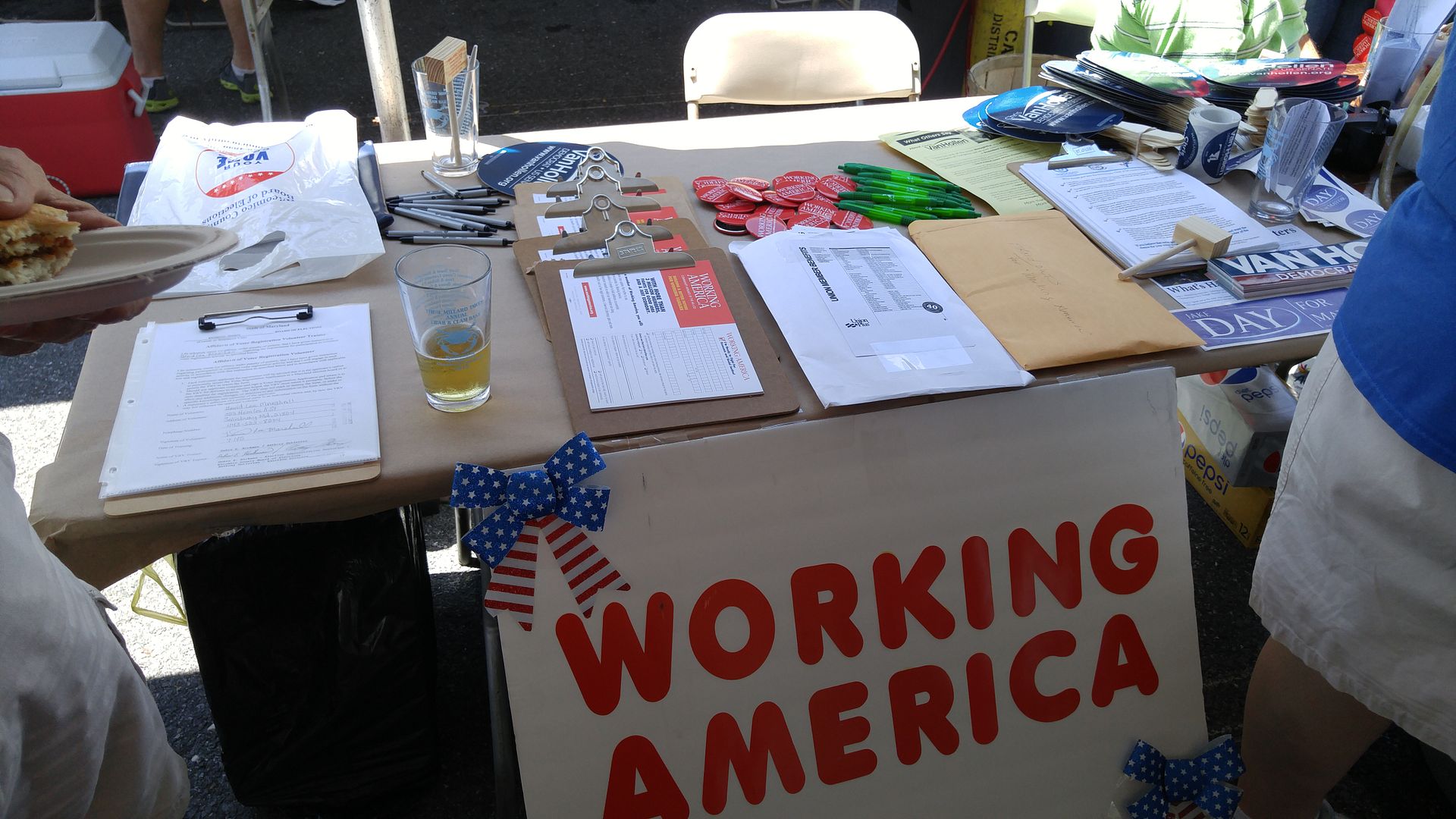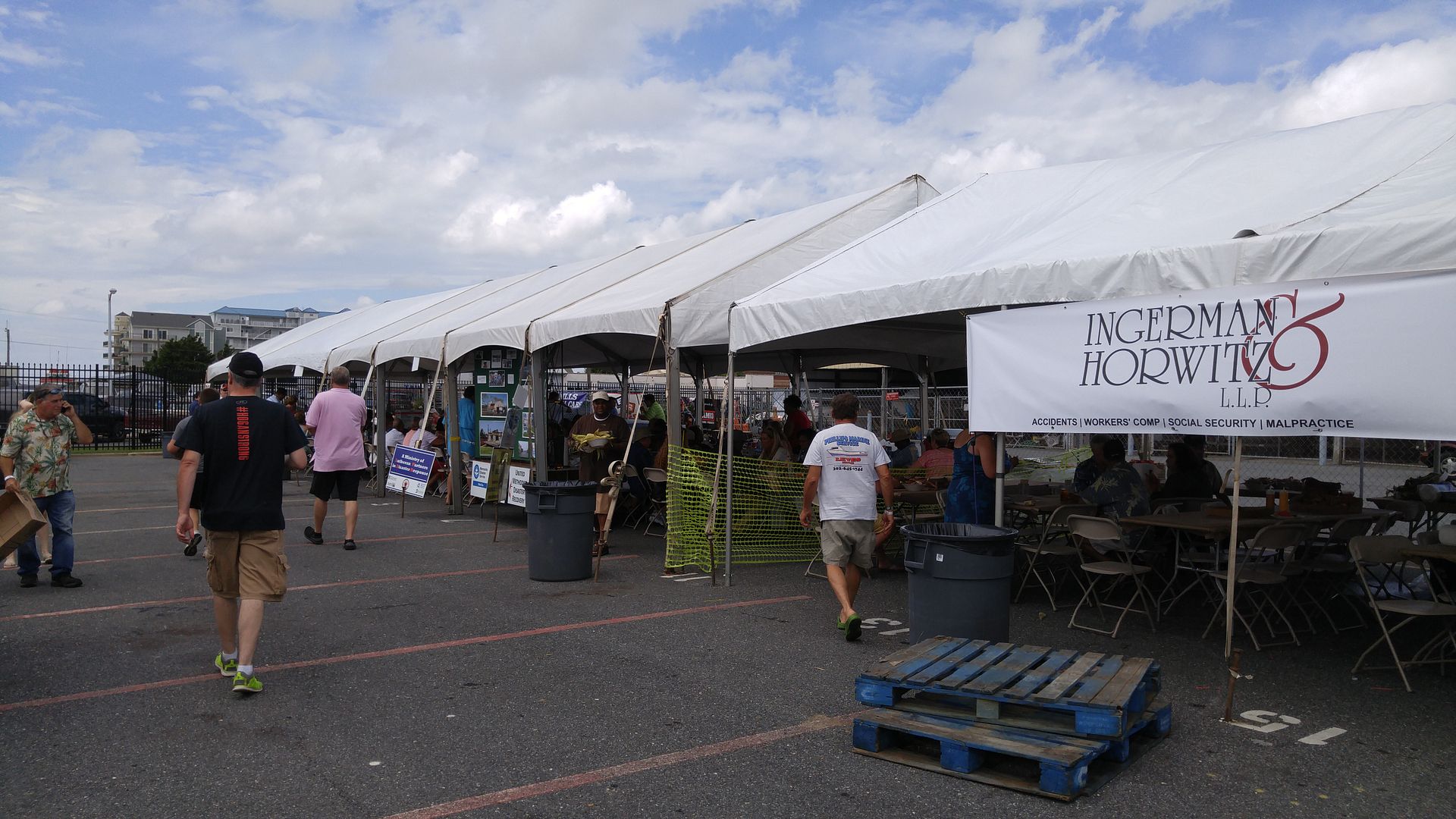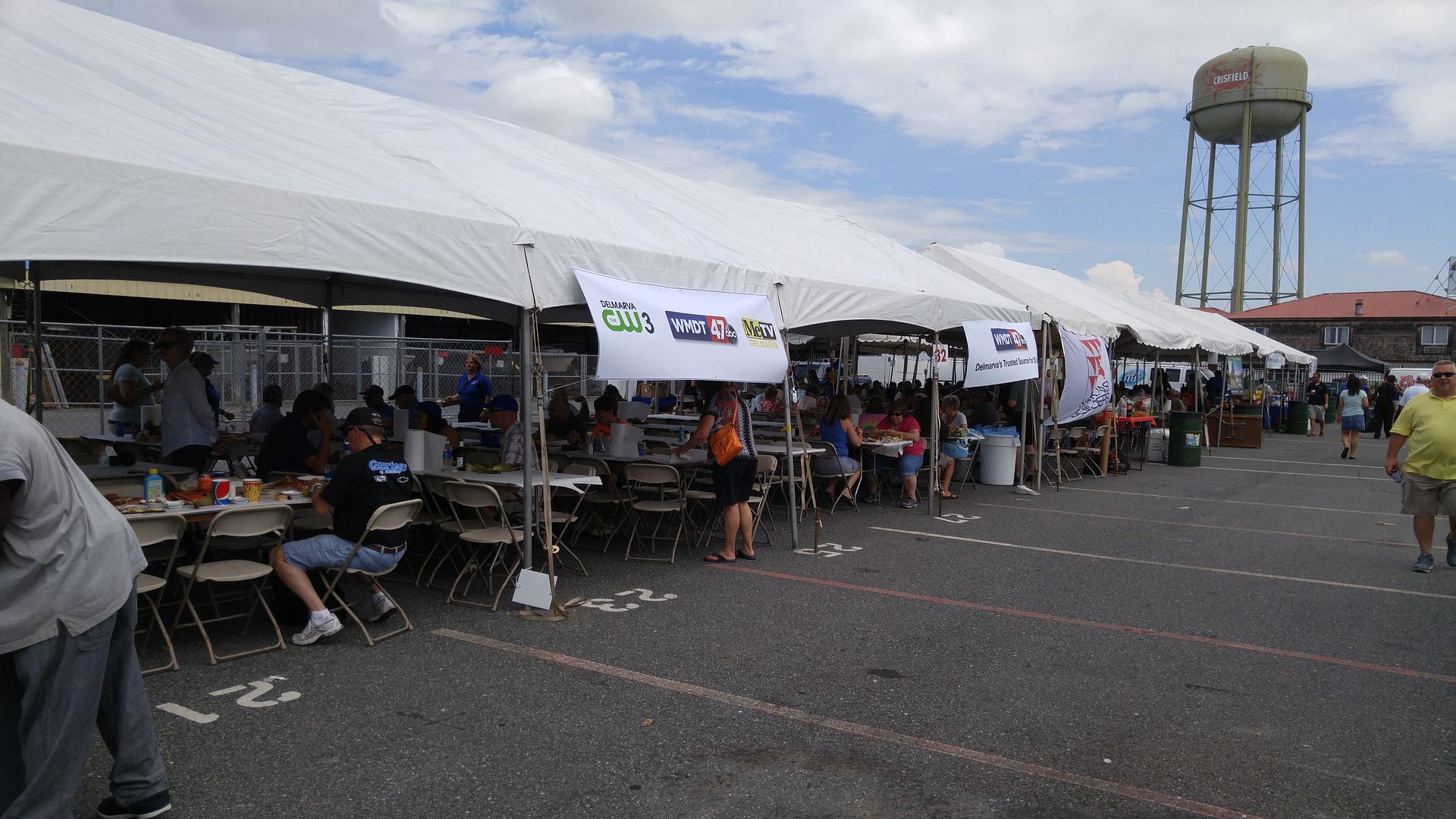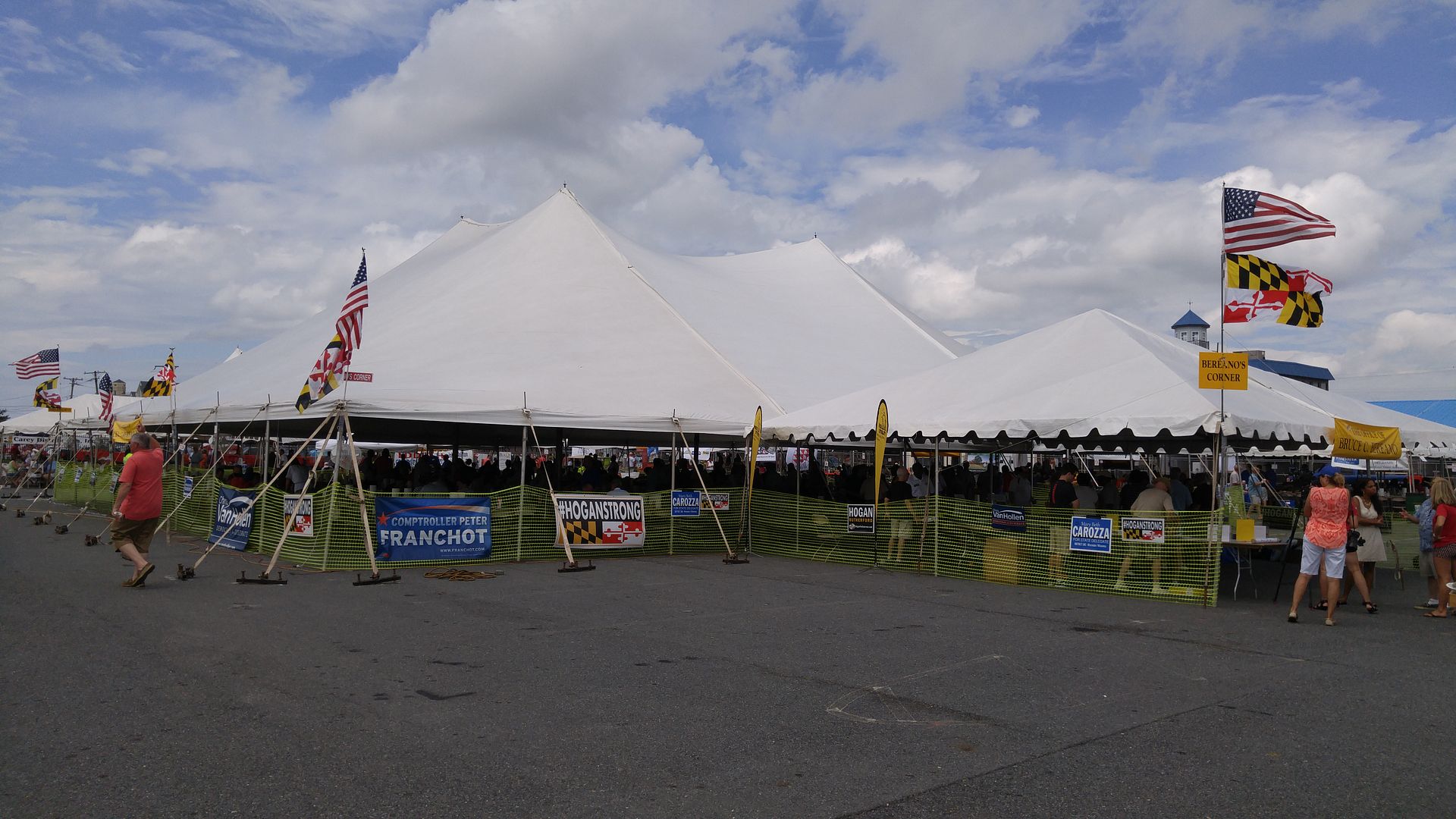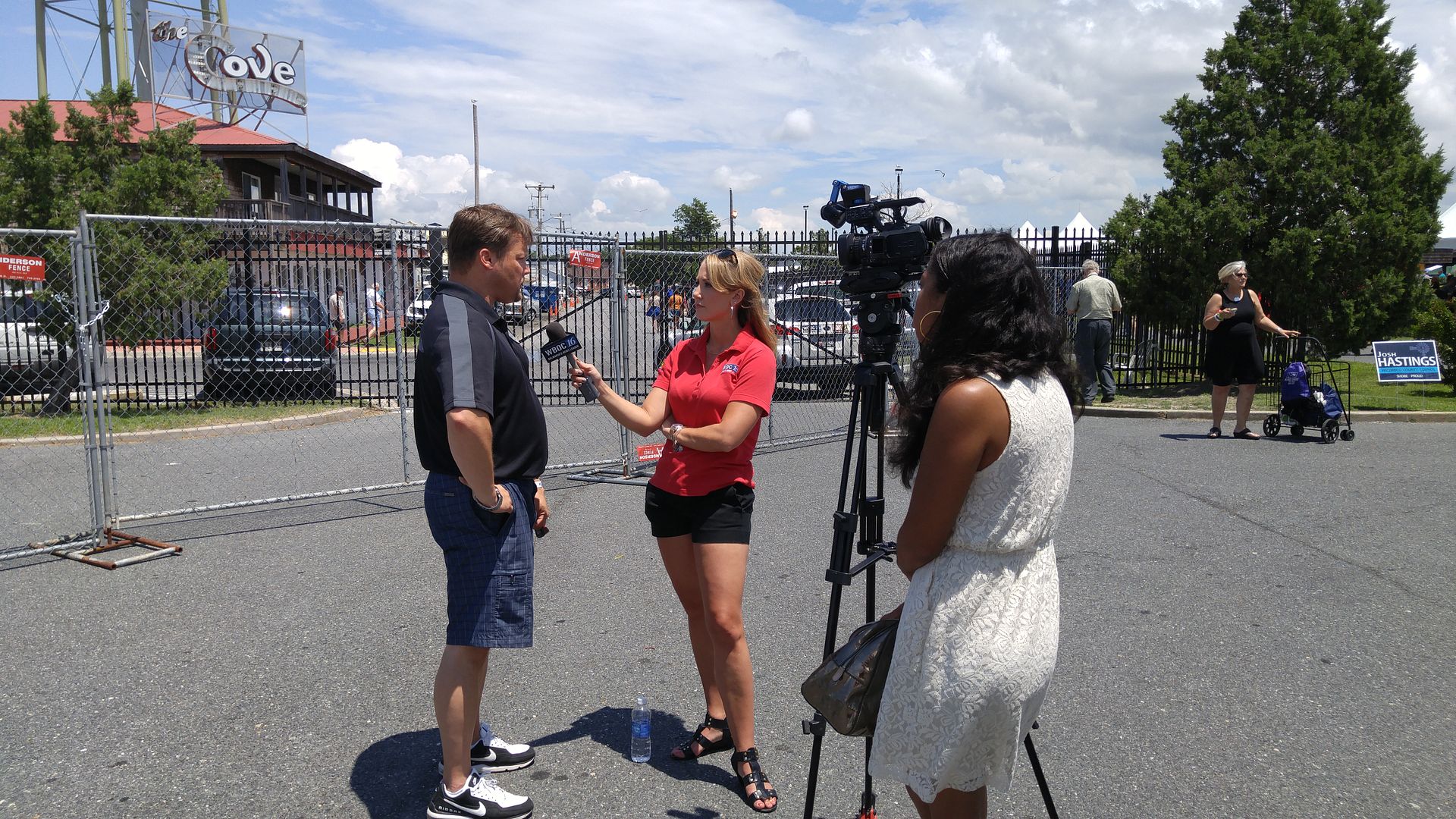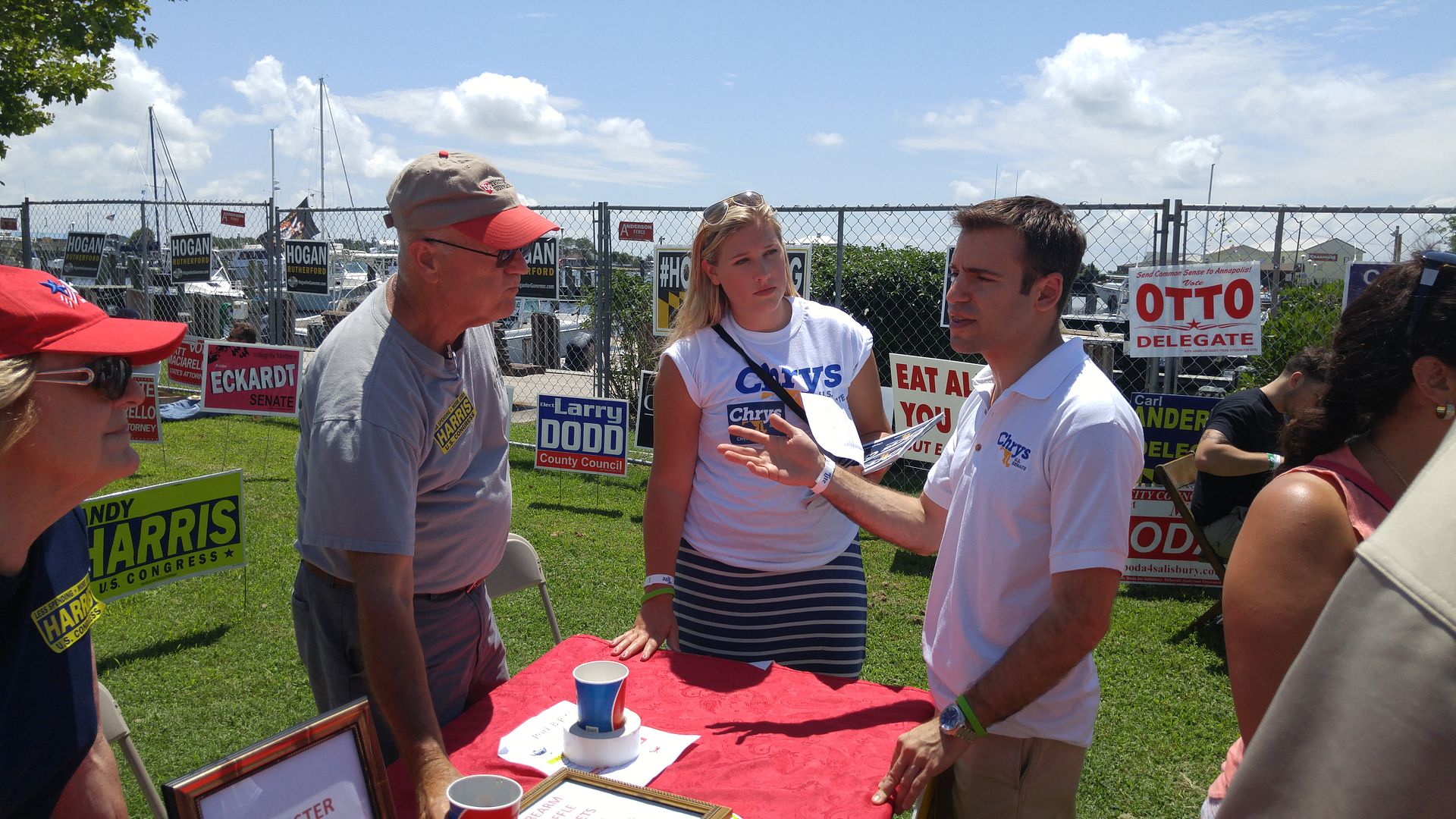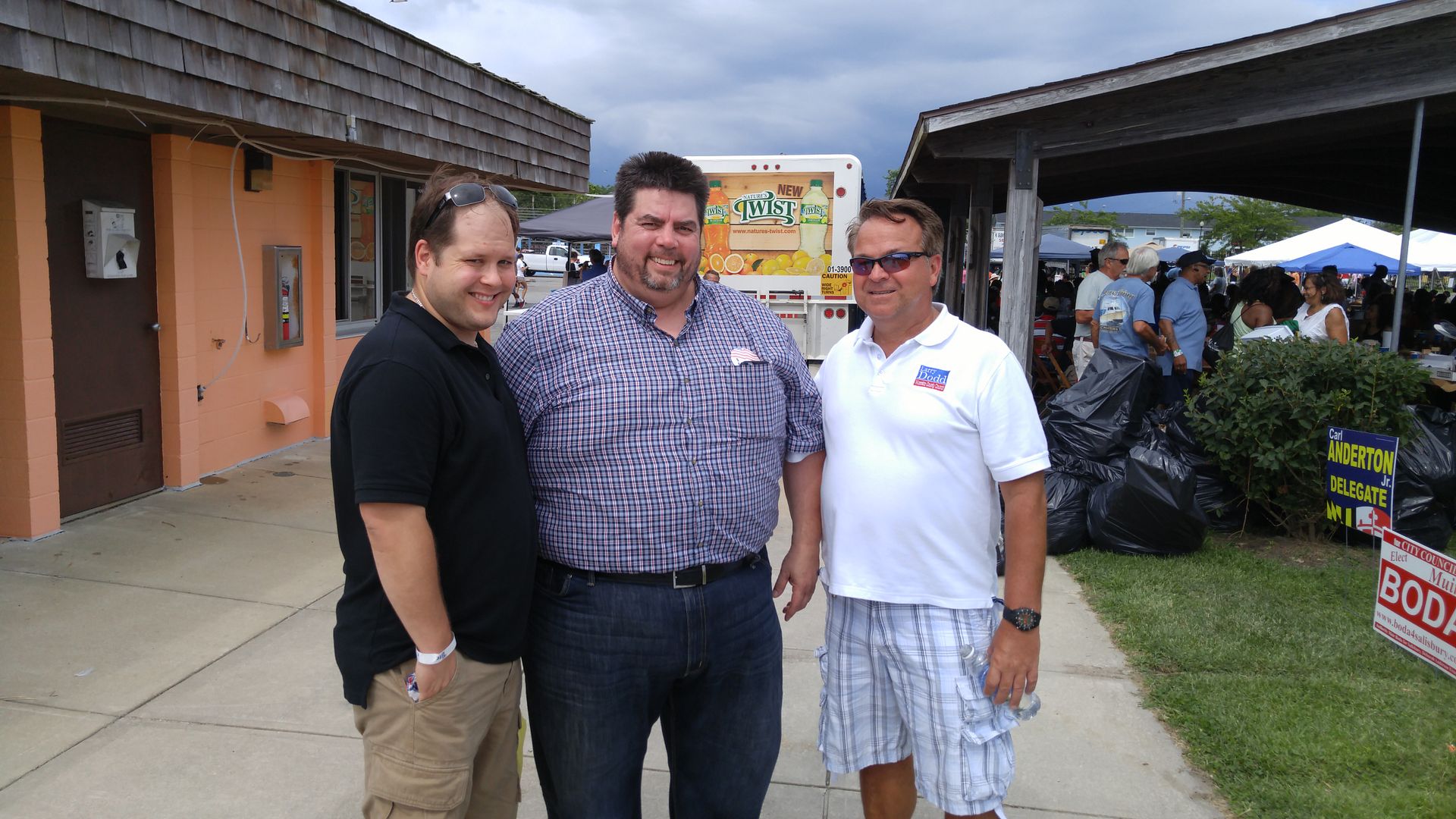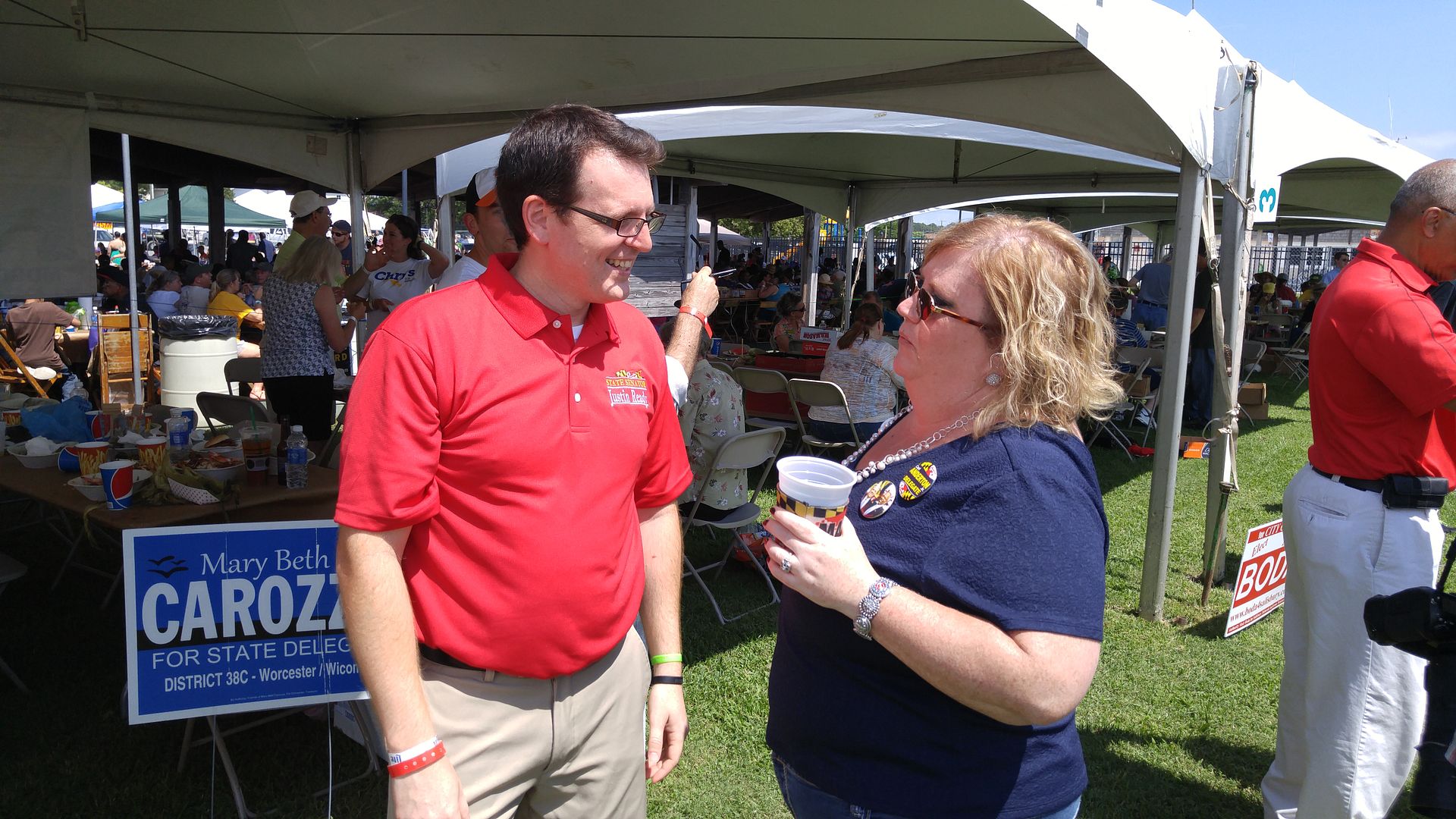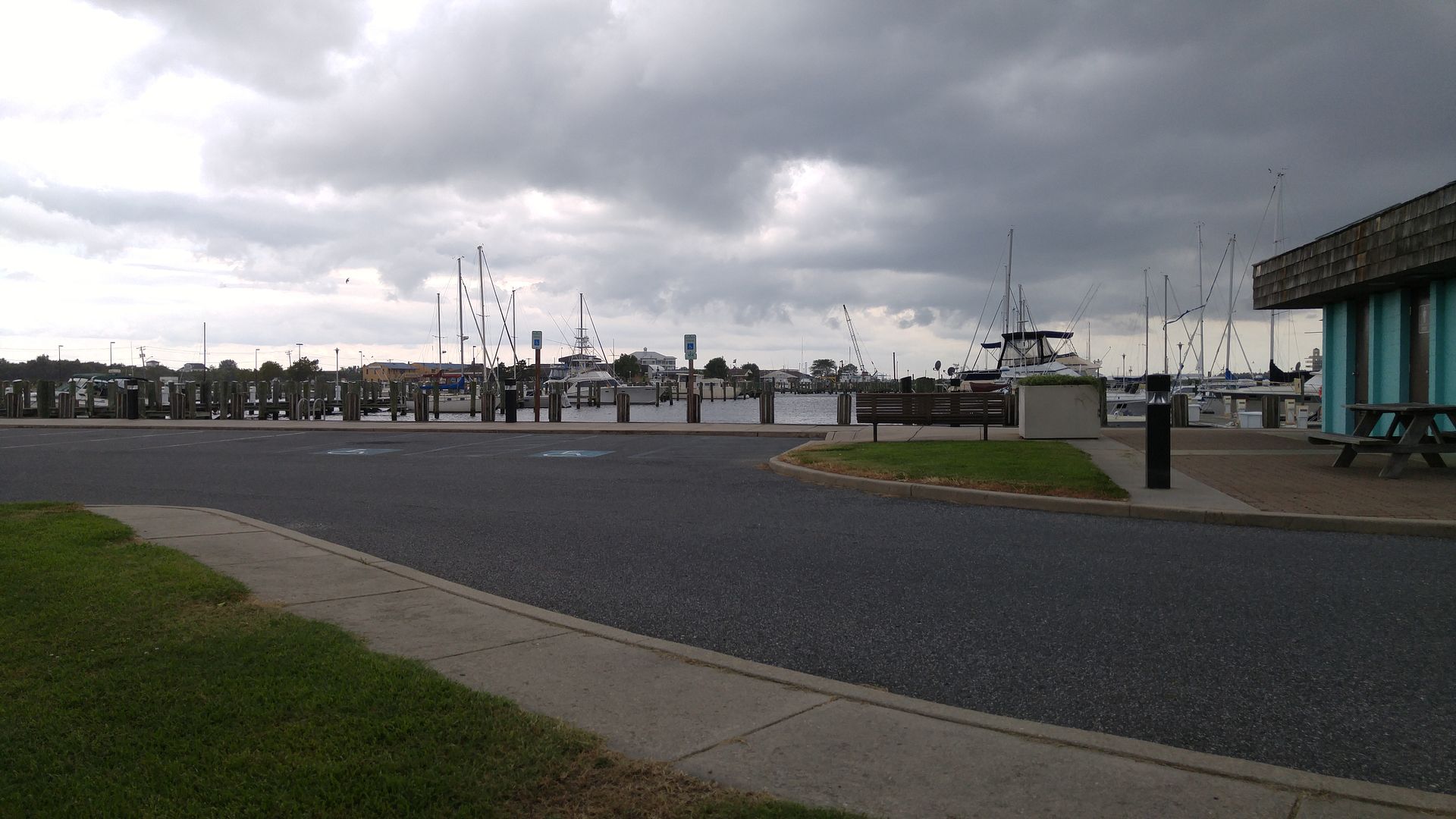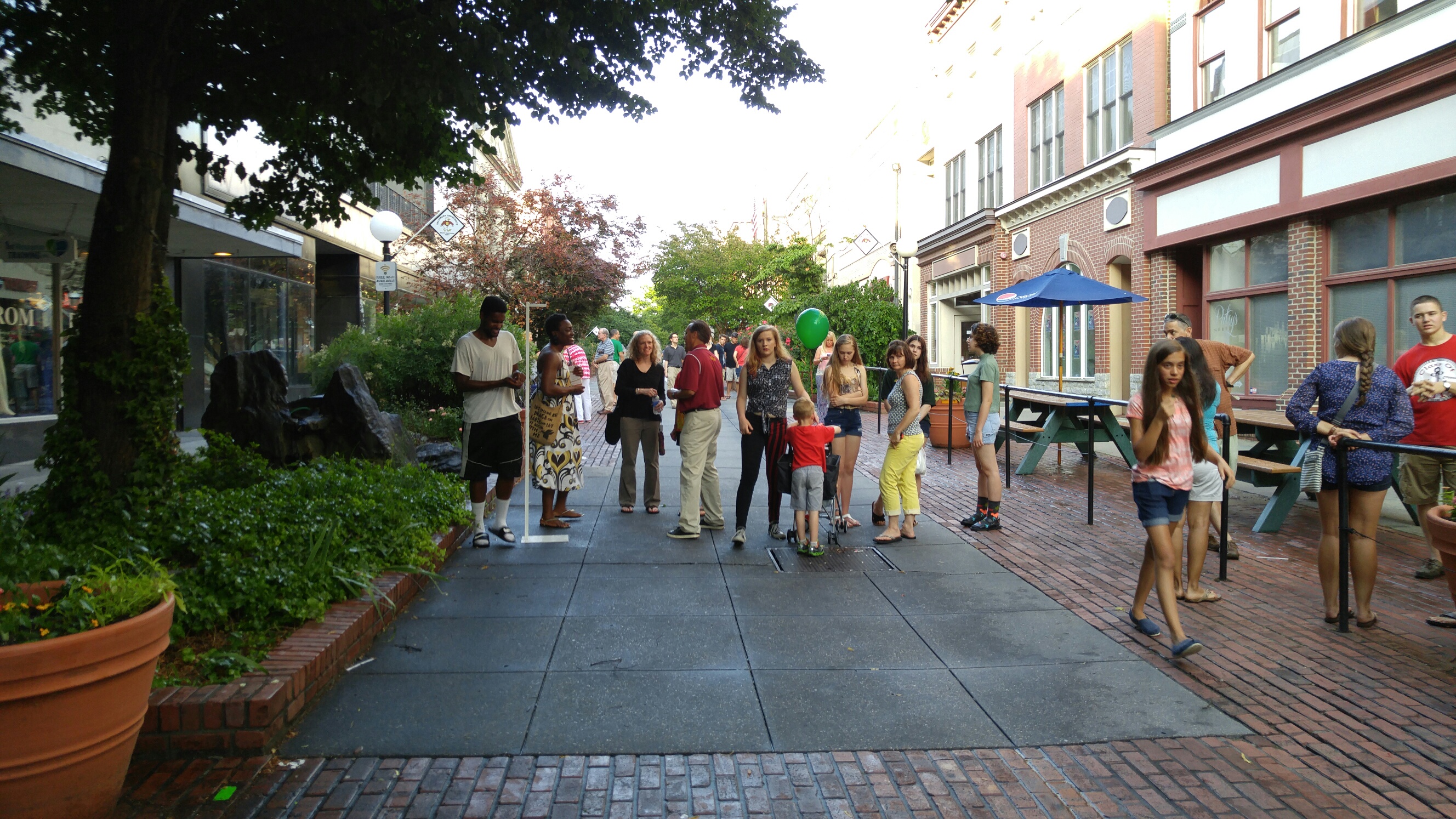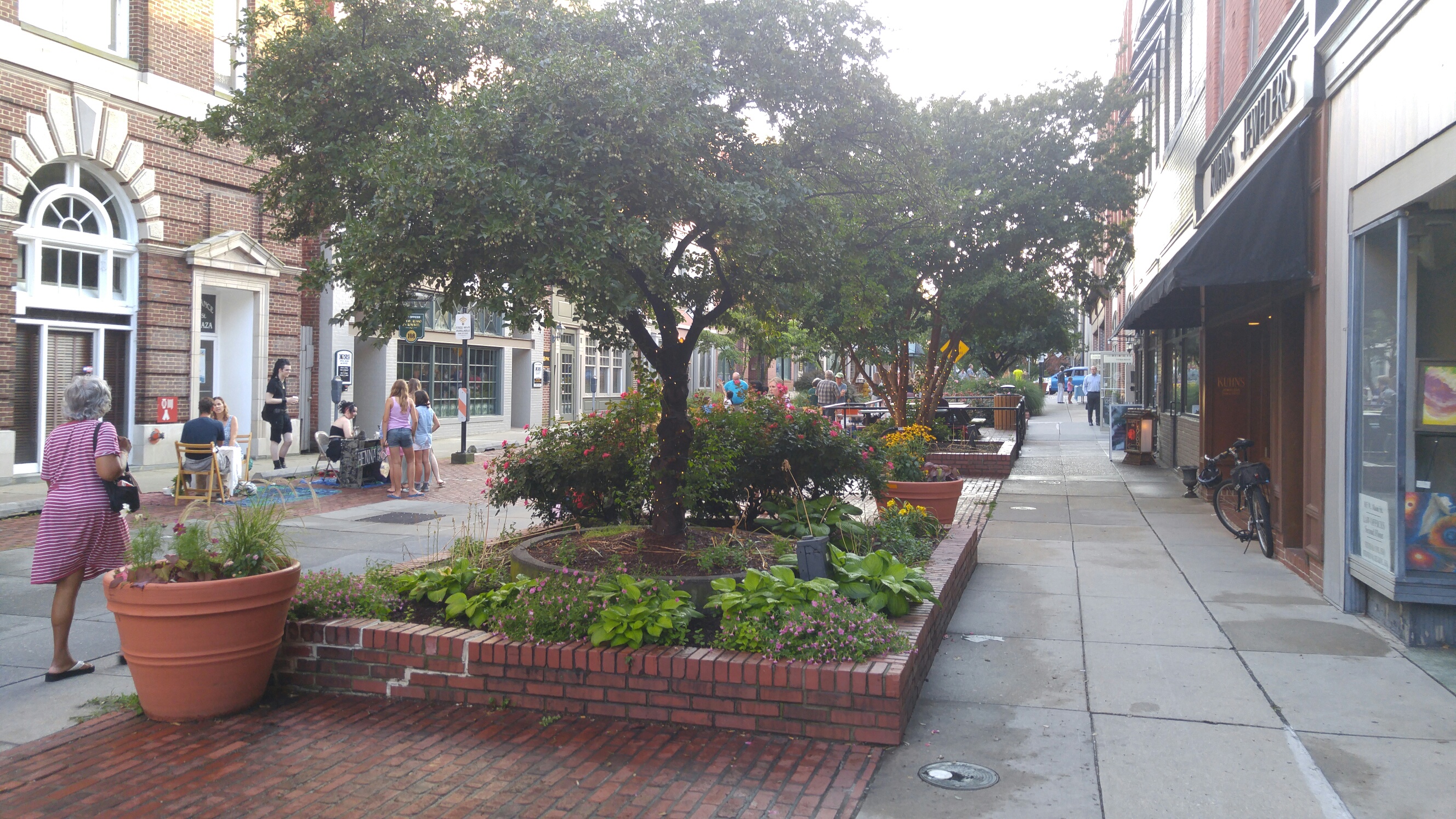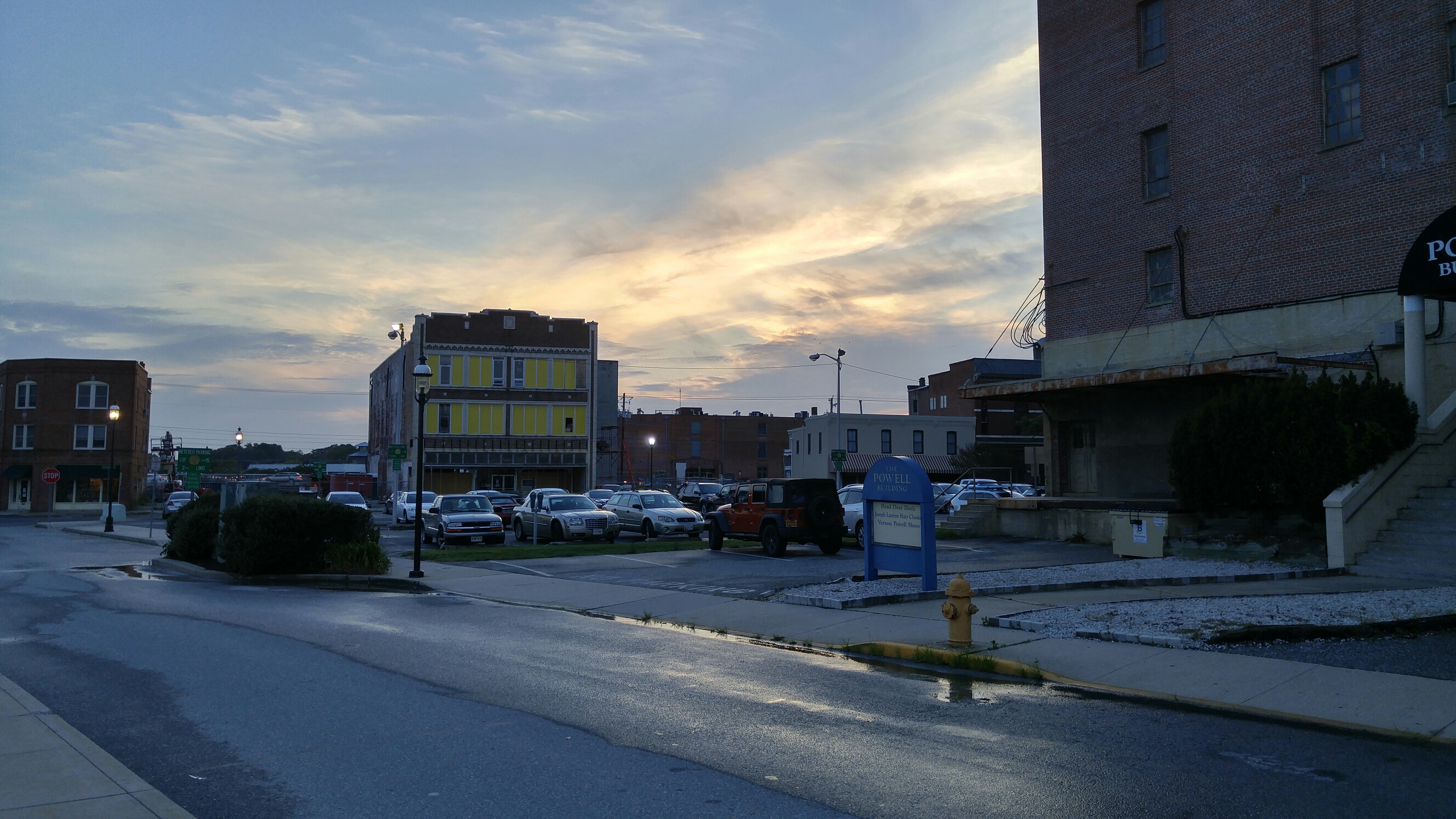We ha an unusual meeting tonight. It wasn’t devoted to club business; after we did the usual Lord’s Prayer, Pledge of Allegiance, and introduction of several distinguished guests we were a treasurer’s report away from the first of three main events of a packed program.
Our first event was the presentation of the WCRC Scholarship to Andrew Boltz of Mardela High School. Boltz is active in the community, including an Eagle Scout project involving backpacks for the homeless. Boltz plans on attending Salisbury University to begin his pursuit of an engineering degree.
Sarah Rayne next addressed the group on behalf of 1st Saturday, a “free, family-friendly” event in downtown Salisbury intended to focus on the performing arts, as opposed to the visual arts highlighted at 3rd Friday.
She noted that the event was timed to be after Saturday chores but allow for patrons to partake in the downtown entertainment venues and restaurants afterward, adding that no food trucks would be present to help with steering business to local eateries – in turn, they would be encouraged to make known their specials for the evening. It’s a “bring your own chair” event, modeled on a similar set of gatherings in Georgetown, Delaware, Rayne added.
Just as clarification, I asked if it was an all-year event. Sarah responded that 1st Saturday was “a warm-weather event” which would run April to October.
The final part of the evening was something that turned out to be a roundtable discussion of the latest General Assembly session by the Republican members of the Wicomico County delegation: Senator Addie Eckardt and Delegates Christopher Adams, Carl Anderton, Jr., Mary Beth Carozza, Johnny Mautz, and erstwhile member Charles Otto, who was redistricted out of the county.
Each representative began by speaking a few minutes about their perspective on the recently-completed session. As the one with the most experience, Senator Eckardt assessed our group as “a wonderful team…this is not a shy group.” She was pleased to have the opportunity to try and get our highway user revenues back, and called it “exciting” to have a Republican governor to work with on the budget. And while the goals of the administration were to cut spending, taxation, and regulation, the sad fact was that most of the governor’s initiatives did not pass.
Some of the budget battles that were fought included funding for the Geographical Cost of Education Index and maintaining the promised $300 million catch-up payment for state pensions. While the budget passed wasn’t fully in line with the initial expectations, Eckardt thought the governor “was in a good position going forward.”
Getting PMT regulations as opposed to statutes and repealing the rain tax law allowed Addie to declare a couple victories. “From my perspective, I was floored” with the things accomplished during the session, Eckardt concluded.
From the House perspective, Delegate Otto was rueful that Wicomico County residents could no longer vote for him, but added he still represented us as the chair of the Eastern Shore delegation – a group that was expanded to include residents in the 35th District, covering Cecil and part of Harford counties. He was pleased the budget grew by less than projected revenue growth, a departure from the previous administration.
Otto noted that “everything bad for agriculture” came out at the House this year, including the “chicken tax” bill and a measure eliminating sales tax exemptions farmers can employ.
Delegate Adams felt “blessed to be a Republican in Maryland” right now because it enabled him to stop items detrimental to our interests, especially at the committee level. One highlight to him among the bills passed was several enacting the recommendations of the Augustine Commission, which included a cabinet-level Department of Commerce. His assessment that Maryland was too dependent on federal employees made him hopeful that the business climate could be changed.
“What a strange, fun, exciting ride it’s been,” said Delegate Anderton. He urged us to ignore people who say “you can’t do it” because he did get things accomplished: the Evo bill which will add 50 jobs in Salisbury while preventing 70 others from leaving, a grant to Three Lower Counties to assist them with a new OB/GYN clinic, and money for improvements to Perdue Stadium essential to keeping the Shorebirds here. And while he was “scared” about the PMT regulations, Anderton believed we had “built a great foundation.” Overall, his first year was “an experience better than I could have imagined.”
Delegate Mautz said the Eastern Shore is “working closely together” and trying to get leverage for its legislative goals. However, he noted that watermen and seafood producers were “under tremendous pressure,” detailing abuses by the Department of Natural Resources. As it turned out, watermen, hunters, fishermen would have been the beneficiaries of many of the bills Mautz worked on, while cheese producers will get a boost.
Yet while Mautz believed Governor Hogan “controlled the debate” on fiscal issues, there was still “serious partisan divides” in the General Assembly. He predicted “a lot of legislation” in the next session.
Johnny also called the events going on in Baltimore “a major setback” for the area and state as a whole. Delegate Carozza picked up on that, asking the group to take a moment of silence and prayer for the city, adding the National Guard had finally been sent in.
Mary Beth also believed we had a “terrific Shore delegation,” agreeing that Governor Hogan had “set the tone’ in his first session. While the budget had a smaller increase than previous years, though, she only voted for the original House budget. She voted against the conference budget because of the raids it made to the pension funds.
“We still need your help,” she added. “Divided government is really tough.” We were encouraged to express our opinions on issues like charter schools, tax relief, and regulations because opponents were relentless and having the constituents as backup strengthens our position. And Democrats “are already coming after (Larry Hogan),” she said.
She gave a couple examples of bills she worked on. One that passed with ease was a bill allowing Seacrets to move its distillery operations to Maryland – Mary Beth got support from Senator Jim Mathias and convinced lawmakers that bringing jobs back from Delaware was worth fighting for.
On the other hand, a veterans procurement bill which sailed through the Senate had a tough time in the House for several reasons, at least one of them territorial as a particular committee chair wanted to do a more large-scale procurement bill next session. She learned that she had to sometimes sell bills, and ended up with a compromise that doubled veterans procurement from 0.5% to 1%.
Once this part finished, we opened the floor to comments and questions. Naturally, a perspective was sought on why we did not get an elected school board vote and what we had to do.
“It’s an easy fix,” said Delegate Anderton. “Eliminate the excuse.” By that, he meant have the public hearings Senator Mathias sought, as two people noted he was on record as supporting the idea with public input. We also learned the Wicomico County Education Association actually supports a fully elected board.
But Senator Eckardt added we “need both Senators in agreement” to get the bill through.
A related question came about school vouchers, which weren’t brought up in this session. Rather, a lot of discussion went toward charter schools because it was the governor’s initiative, said Delegate Carozza. Delegate Adams added charter school reforms enjoyed bipartisan support, while Senator Eckardt noted the BOAST tax credits had been introduced again – these would allow private businesses to direct funding to private and public schools.
On that same front, it was asked if a Religious Freedom Restoration Act-style bill was introduced, and none was to their knowledge.
Turning to taxation, Senator Eckardt stated that few tax rollbacks were surviving the Ways and Means subcommittees.
Farming issues were the subject of a couple queries, and the industry as a whole was considered “low-hanging fruit” by environmentalists, said Delegate Adams. Even though 27 percent of Chesapeake Bay’s phosphorus could be traced to the silt behind Conowingo Dam – according to the Army Corps of Engineers, a fact which came out in a hearing on one of the PMT bills – environmentalists still demanded more regulations on agriculture.
Finally, Anderton responded to a question about road funding by noting he had helped bring it back to some extent through his memory of where the money was placed last year. The state found it again, to the tune of $19 million to municipalities and $4 million for counties. However, he added, some counties were reticent about full restoration because they wanted to use it as an excuse to have their own gasoline taxes.
All in all, it was a chock-full meeting you should be kicking yourself for missing. Because the next fourth Monday of the month is Memorial Day, we next meet June 22.


